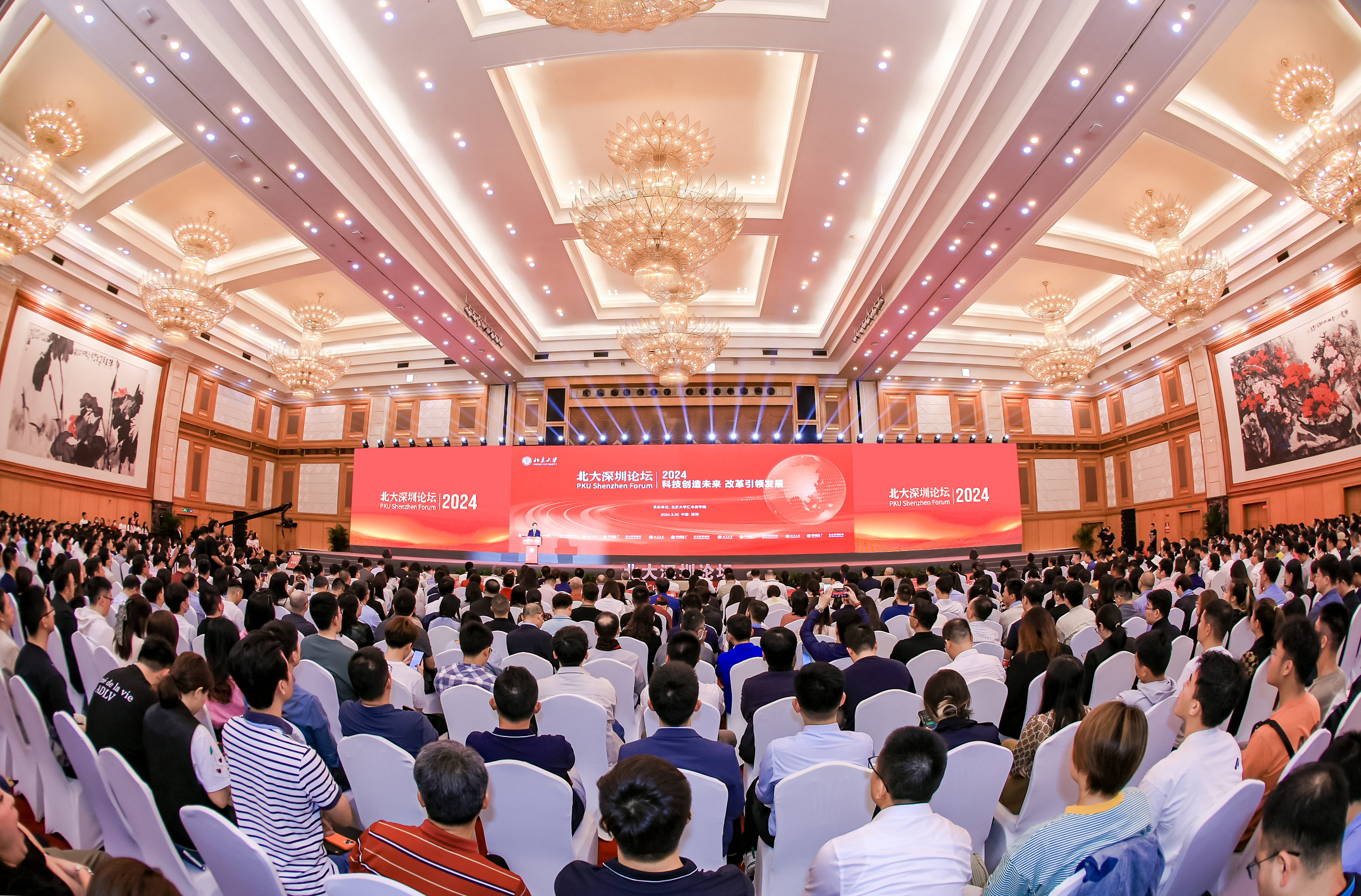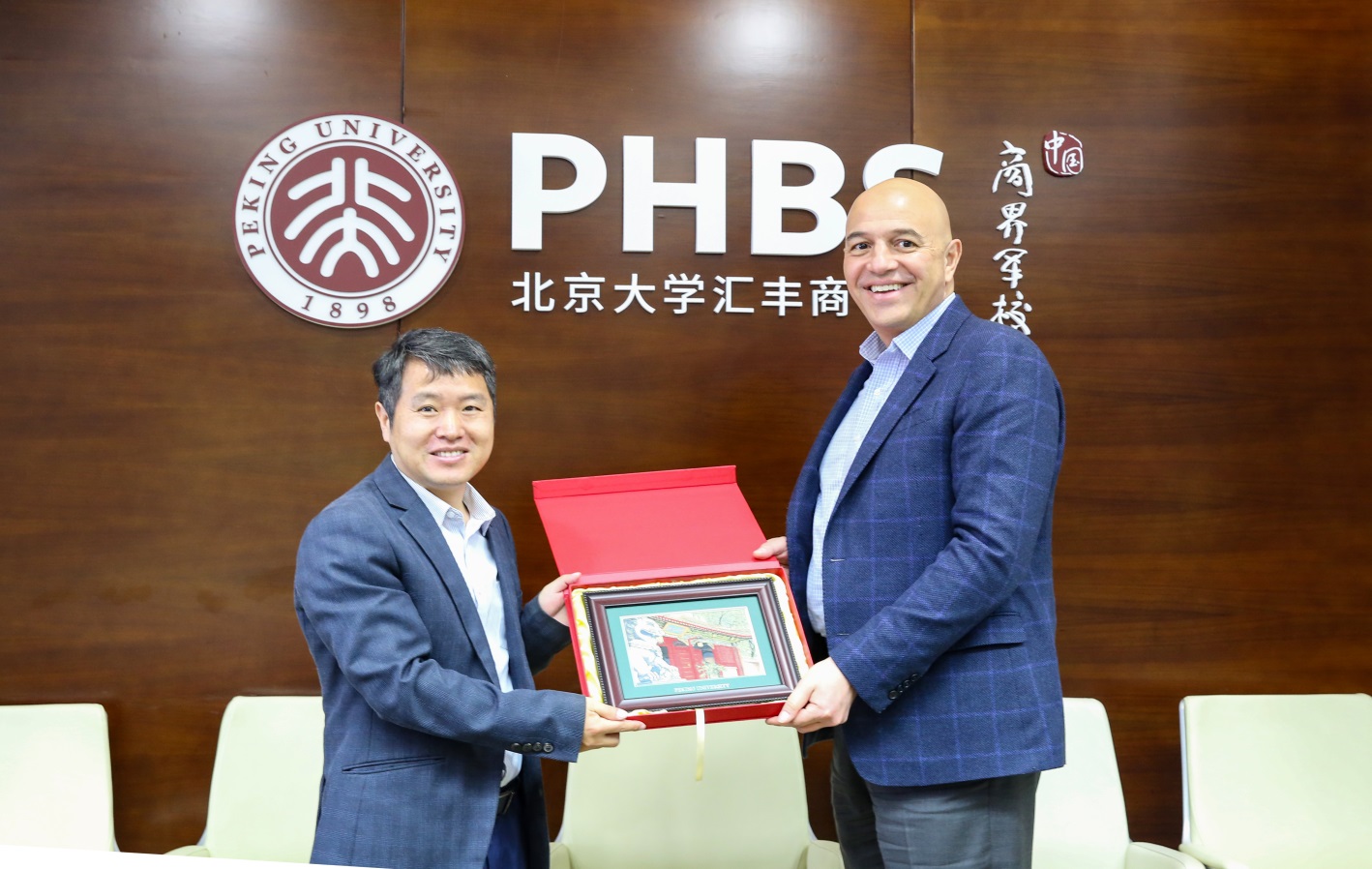China is on the way from economic giant to economic power. But it faces the great challenge of integrating into the world with a more open mind and system. On October 24, more than 40 deans of well-known business schools around the world gathered in Shenzhen and discussed the role of business schools in this process. The Global Dean’s Forum (GDF) also invited a total of more than 500 people including government officials, policy consulting experts, bankers and entrepreneurs.
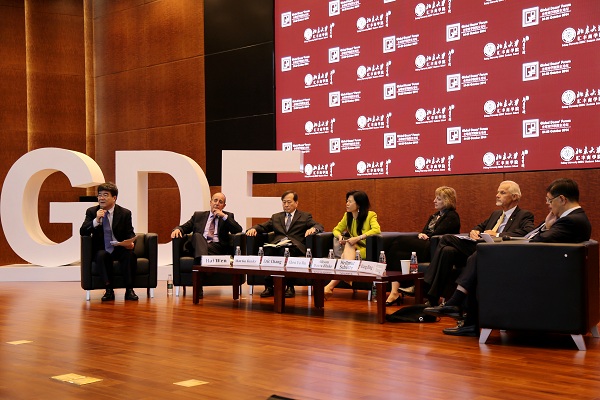
The GDF was initiated by the Peking University HSBC Business School (PHBS) to explore the provisional theme of "Connecting China to the World; Bringing the World to China - The Role of Business Schools.” In the morning, the GDF opening ceremony was held at the new PHBS campus building. Chen Shay, Vice President of Peking University and Dean of Peking University Shenzhen Graduate School; Peter Wong, Vice Chairman in the Asia-Pacific Area and Executive Director of Hong Kong and Shanghai Banking Corporation Limited; and Andrew Sheng , Chief Advisor of China's Banking Regulatory Commission (CBRC) and former Chairman of the Securities and Futures Commission (SFC) of Hong Kong, attended the forum and delivered speeches. The GDF was hosted by Professor Hai Wen, Deputy Director of the School Administration Committee and Founding Dean of PHBS.
Hai Wen said in his speech, “As China is gradually integrating into the world; the role of business schools is more and more highlighted. First-rate business schools can not only cultivate excellent talent but also improve the environment for investment, thus further attracting more enterprises to participate in the local economy construction, which is the aggregation effect of entrepreneurs.”
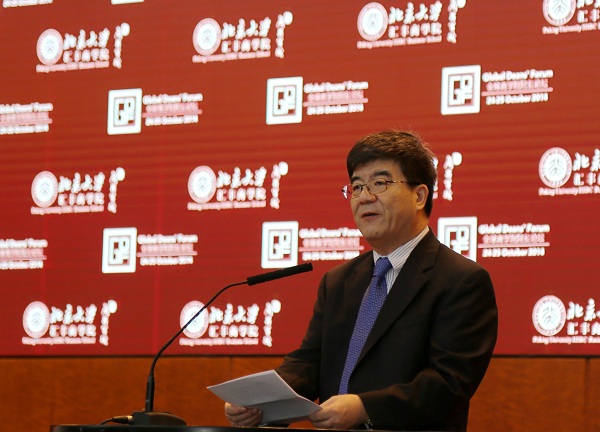
Banker Peter Wong gave his outlook for 2013. He said, “The service sector accounts for most business in Hong Kong. However, if Hong Kong cooperates with Guangdong to build an area platform of finance, competitiveness between both will be enhanced, which will play a pivotal role in promoting China’s financial reform.”
Yu Gang, co-founder and chairman of Yihaodian, a leading Chinese online supermarket, pointed out that if Chinese companies want to become a world-class player, they must attach importance to the role of innovation and entrepreneurship. He used the case of Yihaodian to show how innovation helps obtain higher customer satisfaction. Yihaodian views innovation as the core spirit and culture of the enterprise. It established the innovation center and innovation incubator project and launched innovative projects such as “virtual” supermarket.
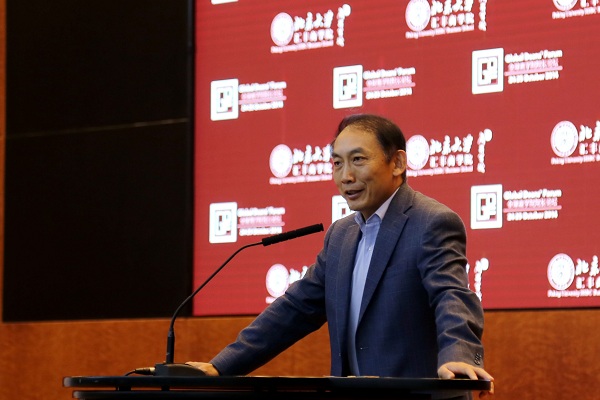
Andrew Sheng, former Chairman of the Securities and Futures Commission (SFC) of Hong Kong, thought that an enterprise must build a sustainable success model to survive in a world full of variability, uncertainty and ambiguity. Change is a continuous evolution. Every change of environment will increase the complexity of work. In the new environment, only when CEOs are able to recognize change and accept it, can they avoid being weeded out.
In addition to speeches, a workshop titled “Leading Corporations into the Future: Re-Defining and Re-Establishing the value and relevance of business education in the new global economy” was also held in the morning. In the workshop, deans of business schools discussed the change Chinese enterprises need for the global market.

Subsequently, the guests and scholars were divided into several groups and discussed the following topics:
1. “Developing Global Innovations and Entrepreneurs -- How Can Business Schools and Industry Collaborate?”
2. “Creating a Sustainable Future -- Integrating Sustainability, Social Entrepreneurship and Corporate Responsibility into the Business School Curriculum.”
3. “Towards a New Global Mindset for Future Business Leaders.”
4. “Business Education in the Digital Age -- Is Technology Disrupting the Future of Business Education?”
5. “Shaping Tomorrow’s Leaders -- Putting Ethics Back into Business.”
6. “Going Beyond the Classroom -- Enhancing Engagement and Learning Experiences in Business Schools.”
7. “Global Mindset, Local Impact -- How Can Chinese Companies Become More Globally Competitive?”
8. “Enhancing the Relevance of Academic Business Research in Practice -- Can Business Research Drive Insights for Industry Best Practices?”
Innovation was one of the key words used often in the GDF and also the cornerstone for Shenzhen to develop from a small town into an international metropolis. For over 30 years, numerous world-class enterprises and entrepreneurs have emerged here. On October 25, heads of the participating business schools visited the most representative outstanding enterprises in Shenzhen, Huawei and Tencent. At present, Shenzhen is building itself into an international financial center, which needs pluralistic intelligence transportation.
The GDF created a platform for communication among international scholars and business elites and provided a channel of communication between China and global well-known business schools.










